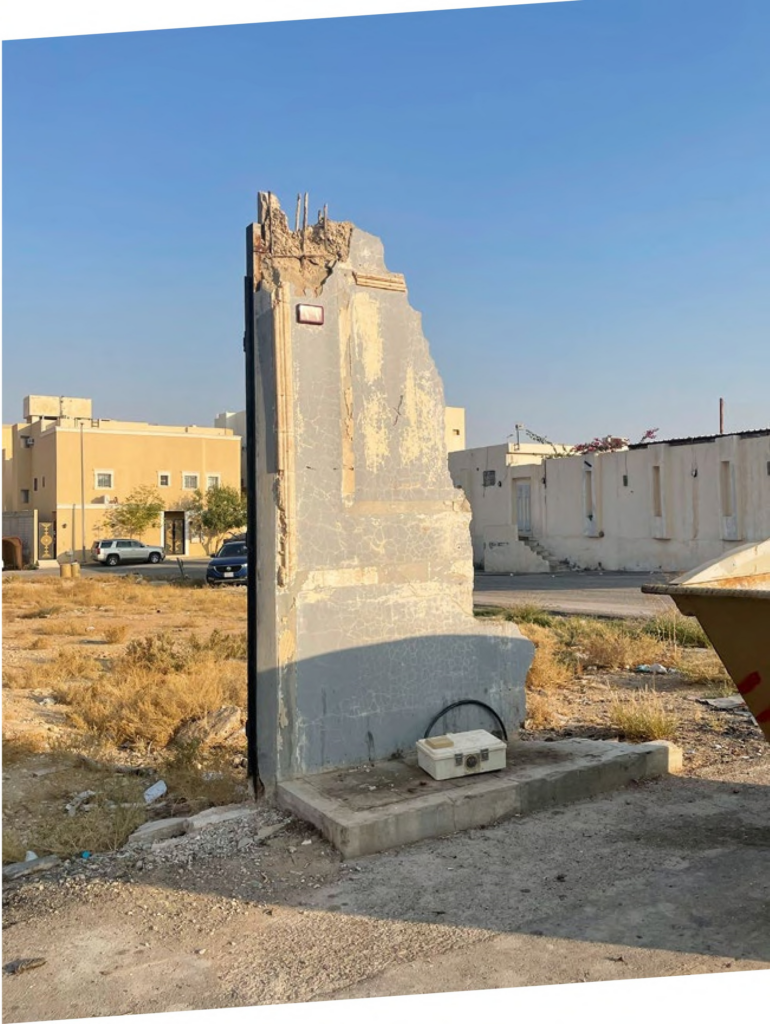VIKRAM DIVECHA
Born in 1977 in Beirut, Lebanon,; lives and works in Dubai, United Arab Emirates
Wall Extract (Riyadh)
2024 / Installation and Social Gathering on March 8 and May 11, 2024

Vikram Divecha’s practice focuses on “found processes,” a term he uses to describe the urban operations he investigates and deploys. Ranging from municipal gardening to demolition, these processes are his realm of intervention. By shifting authorship to collaborators and opening gaps within urban systems, Divecha challenges the nature and modes of artistic production while exploring themes of time, architecture, and migration. His engagements translate into public art, installations, moving images, photography, painting, and drawings. His work has been exhibited regionally and internationally at venues including the United Arab Emirates national pavilion at the 57th Venice Biennale and Sharjah Biennial 13 (both 2017).
For Wall Extract (Riyadh) (2024), Divecha selected a section of wall from a structure in Riyadh that was slated for demolition. Part of Wall House, a larger project that began in Abu Dhabi in 2022—for which he envisions collecting hundreds of wall and façade sections from buildings across the region that are to be demolished and stores them in a warehouse-like center—Divecha proposes an urgent “archiving of the present.” Serving as starting points for expansive sociocultural mappings of time and place, the wall fragments stand in as bearers of histories—of tenants, infrastructure, materiality, aesthetics, and culture. With its extensive lifeline, how can Wall Extract (Riyadh) perform what it has borne witness to? How can this architectural fragment be repurposed into a social object? By incorporating time-based responses involving poetry, cuisine, social relations, and interactions into his work, Divecha turns the artifact Wall Extract (Riyadh) into an active participant, transforming urban debris into an agent for conveying an alternative and inclusive cultural history. As the artist points out, “These walls are like tree trunks: they are not made out of concrete and cement, but out of time.”
